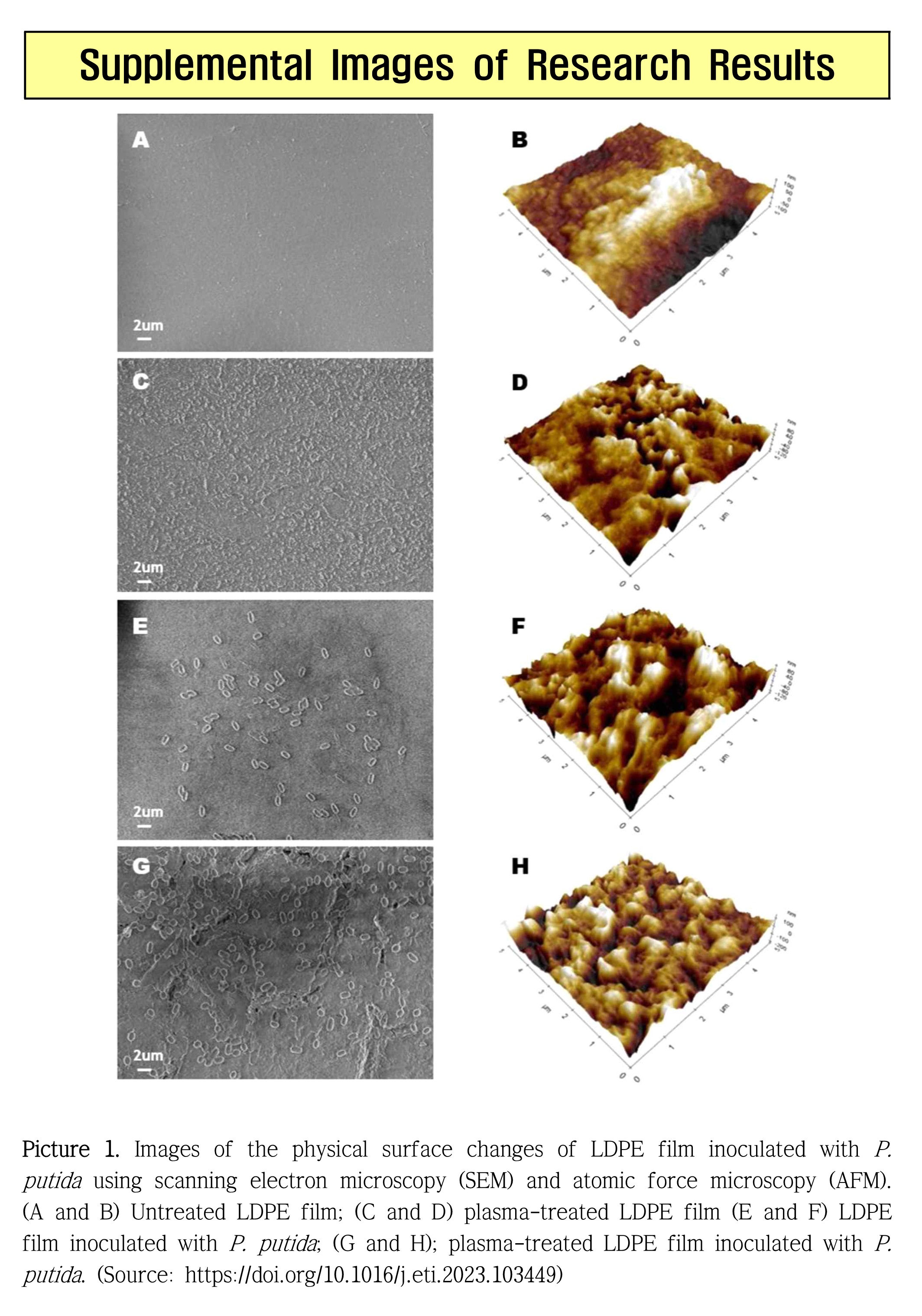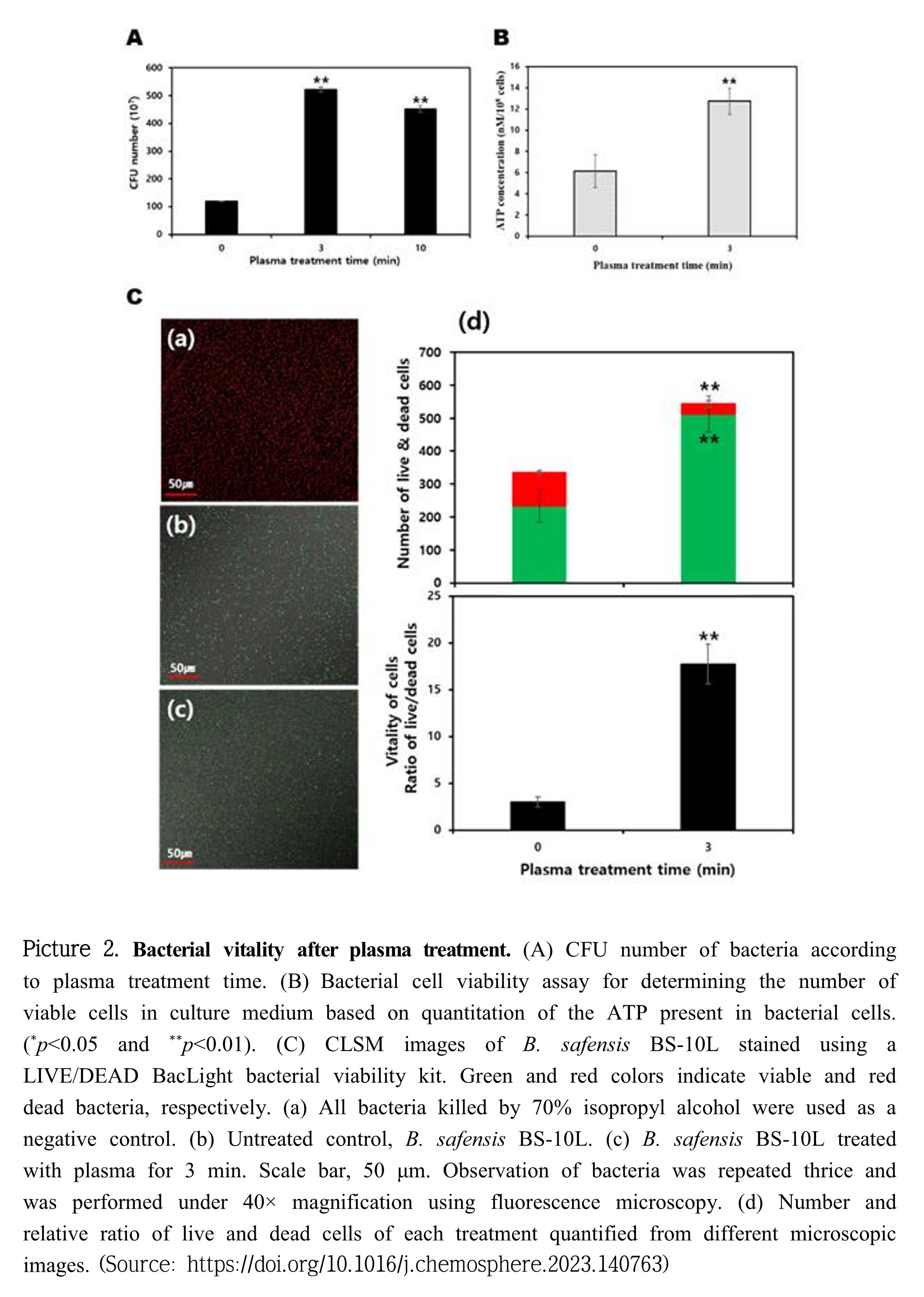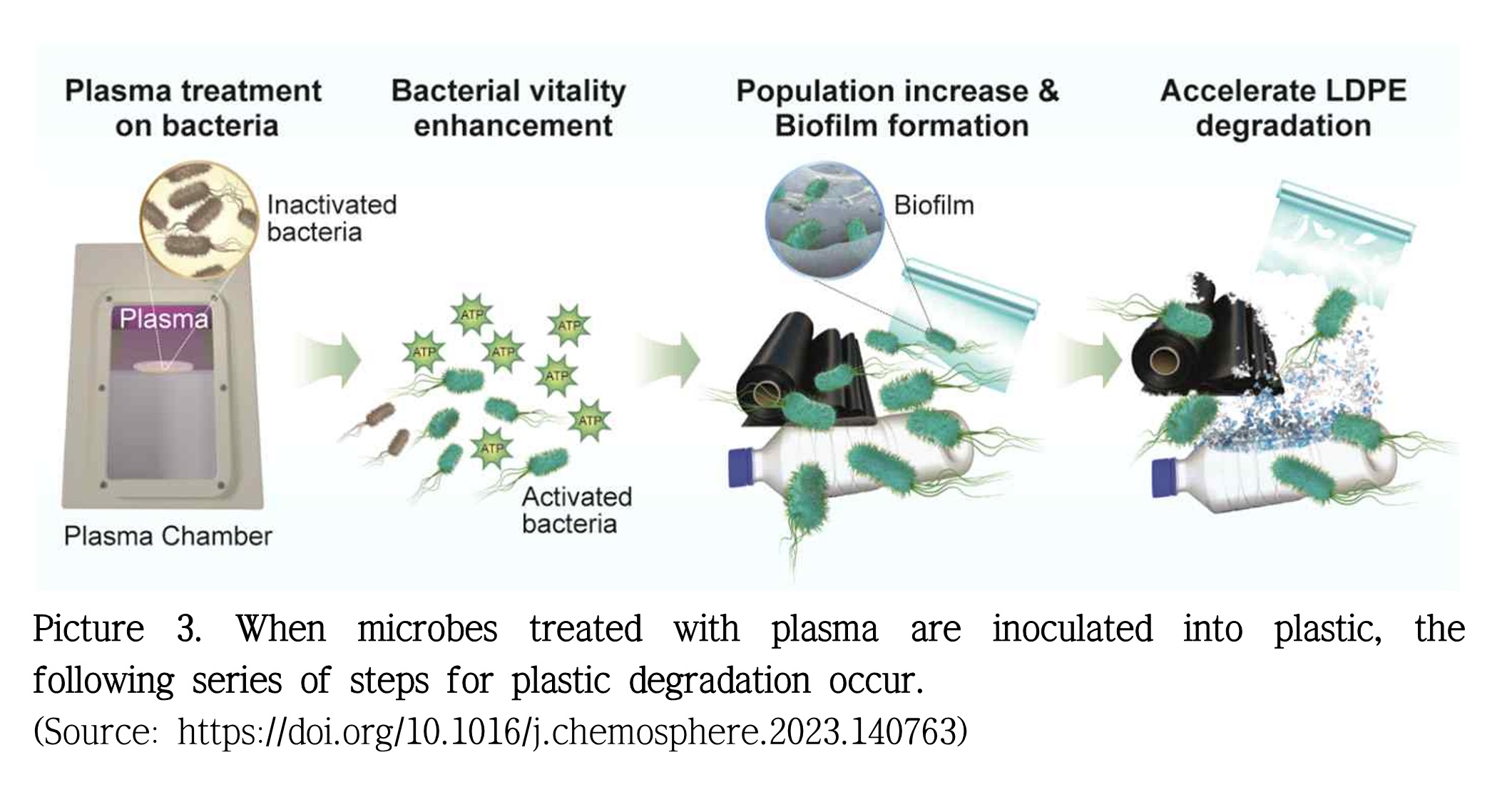News & Media
Plasma Enhances the Efficiency of Microbial Plastic Degradation
- NameKFE
- Date2024-02-14
- Hit3,239
Plasma enhances the efficiency of microbial plastic degradation
- "Plasma treatment can enhance microbial plastic degradation efficiency, as shown in world's first demonstration" -
Research findings utilizing plasma technology, often referred to as the fourth state of matter, to enhance the efficiency of microbial degradation of waste plastics have been announced. As a result, the potential for environmentally friendly treatment of plastic waste is expected to expand.
The Korea Institute of Nuclear Fusion Energy (KFE) announced the successful development of plasma pretreatment technology applicable to microbes and waste plastics, leading to increased efficiency in microbial plastic degradation.
The biodegradation of waste plastics using microorganisms are gaining attention as an environmentally friendly method due to the absence of toxic residues. However there is a need for additional research to improve the efficiency for application to larger volumes of plastic waste.
Dr. Sang Hye Ji, from the Plasma Technology Research Institute at KFE conducted research using two methods: directly treating microbes with plasma and inoculating microbes after plasma treatment of waste plastics. In both methods, it was confirmed that the degradation efficiency of waste plastics was improved.
When microorganisms were treated directly with plasma, the microbial population of increased approximately fivefold, and their vitality
and functionality was enhanced. As a result, the oxidative action accelerating the degradation of waste plastics increased by over eightfold compared to microbes without plasma treatment. The observation of carbonyl bond formation, evidence of strong oxidative reactions, demonstrates that the rate of plastic degradation is accelerating.
*carbonyl : Composed of a carbon atom double-bonded to an oxygen atom, the existence of carbonyl is evidence that the injection of oxygen is weakening the atomic bonds in the waste plastic thus speeding up oxidation
During the research process, Dr. Ji successfully identified novel microbes capable of degrading waste plastics and formally registered the biological resource information of these microbes with the National Center for Biotechnology Information (NCBI) in the United States.
In addition, when microbes were inoculated into waste plastic samples treated with plasma, the weight decreased by approximately 80%-whereas in untreated samples the weight decreased by approximately 50%. It has been proven that more efficient decomposition is possible if plastic is treated with plasma and then inoculated with microorganisms.
Although research on microbial plastic degradation has been conducted in various ways in the past, this study represents the world's first case to apply plasma technology to microbial plastic degradation and demonstrate its effectiveness. Furthermore, it is noteworthy that unlike previous research, which focused on using the strong electric fields and radicals of plasma to eradicate harmful microbes, this study demonstrates the potential to activate beneficial microbes by providing suitable stimulation to them.
Dr. Ji, the research director, said, “Based on earlier experiences in studying the activation of beneficial microbes through plasma treatment, I believe it is entirely feasible to apply plasma technology on plastic degrading microorganisms.” Dr. Ji continued, “we plan to continue proactive research to further enhance the efficiency of plastic degradation through further research into the mechanisms of plasma and microbial activation.”
Dr. Suk Jae Yoo, president of KFE, said, “Plasma technology, which plays a crucial role in advanced industries such as semiconductors, is also being recognized for its value in fields closely related to our daily lives, such as agriculture, food, and the environment.” He also expressed his ambition to strive for securing fundamental plasma technology and creating new industries to ensure that plasma technology can be applied to a variety of fields in the future.
The research results have been applied to patents titled 'Activation of plsatic degradable microorganisms by plasma' and 'Invention of plastic treatment device and method for plastic treatment'. Additionally, relevant papers have been published in the international academic journals Chemosphere (IF 8.943) and Environmental Technology & Innovation (IF 7.758).




보안문자를 입력 후 확인 버튼을 누르세요.
